Bee Pollen Superfoods & Longevity
Have you heard the term 'Superfoods?' It refers to a group of foods that are considered to be the most nutrient dense on the planet. Foods like chia seeds, wheatgrass, spirulina and even alfalfa.
There are a bunch more on the list and more and more being added every day due to science's increasing ability to identify the amazing compounds found in these foods and their profound health effects.
Now, I just so happen to be very interested in what helps people live the longest and the happiest. I mean, what is the point of working like mad at a job you hate and then dropping off because of a heart attack two weeks after your retirement?
Naturally, this question lead me to superfoods and the fact that the more of these foods people eat around the world, the longer they seem to live.
Of course, what you eat is only ONE of the many habits you should acquire for longevity. There is quite a bit of research on diet restriction, exercise, social contact and friends, staying married, some sort of spiritual practice, breathing, laughter, stress management and more.
Being being a nutritional consultant and a passionate 'foodie', I'll focus on the superfood aspect!
I ran into a friend of mine recently who happens to be health nut just like myself. We got to talking about longevity and she mentioned that she was reading somewhere that centenarians (people that live to be 100 or more) had one thing in common...
They ate some sort of bee product everyday! This got me thinking. So I went to investigate where the research was coming from. And this is what I found.
I found out that there is a doctor from Russia who wondered the same thing. High up in the Caucasus mountains (a mountain system in Eurasia between the Black and the Caspian sea) of the former Soviet Union live villagers that are some of the longest living people in the world.
What was their secret to longevity?
Dr. Nicolai Tsitsin decided to investigate and do some research for himself to find out their secret.
So What is Bee Pollen?
Bee pollen is one of nature's Superfoods. It is simply flower pollen with a little bit of “magic” added by the bee. The actual gathering of pollen is a lot more complex than it would seem to most of us. When the honeybee spots a flower, she settles on the stamen (the pollen producing part) and skillfully scrapes off the powdery loose pollen with her jaws and front legs.
Next, she moistens the pollen with a dab of the honey she brought from the hive. Her tibia contains thick, trimming bristles called “combs,” which she uses to brush the gold powder from her body mid-flight into tiny baskets found on the outside of her legs.
When her basket is full, the microscopic golden dust has been pressed down into a single golden granule. Back at the hive, enzymes and nectar are added to the flower pollen to make bee pollen.
It is often referred to as “the bread of bees." It is actually pollen that bees use for nourishment, not honey.
One of Nature’s Perfect Super Foods
One of the most fascinating things about bee pollen is that it can’t be duplicated in a laboratory. Even though thousands of analysis have been made on bee pollen using modem technologies, there still are certain components in it which science cannot identify. The bees add some mysterious ingredients that may very well attribute to its amazing healing properties.
Bee pollen is considered a “superfood,” meaning that it contains every ingredient required for sustaining life. It is 25% vegetable protein (including at least 18 amino acids, and all eight essential amino acids) and contains more than a dozen vitamins, 28 minerals, 11 enzymes and co enzymes, and 11 carbohydrates. This is why they call bee pollen “nature’s perfect food!” It contains every vitamin, mineral and amino acid that the human body needs.
The history of bee pollen is even older than mankind. Bees buzzed over our planet long before humans came into existence. The pollen and honey produced by the bees provided nourishment for animals in the very early days and later for people as well. We now know that primitive man not only fought the bees for their honey, but also feasted on the bee pollen stored in the comb. Aboriginal tribes still feast on bee grubs and regard bee pollen and honey as “well worth the price of a few stings.”
The Bible, Torah, Koran, along with the scrolls of the Orient, the writings of ancient Greece and Rome, even the relatively recent Book of Mormon, all praise the industrious honeybee and her highly nutritious and healing products of the beehive. There are even legends which claim that bee pollen was the secret “ambrosia” eaten by the ancient gods to acquire eternal youth.
Science and Research
Most of the research on the therapeutic properties of bee pollen has taken place in Europe and Russia. Since the 1940s, many analytic studies have been conducted on bee pollen, particularly at the Laboratory of Apiary Research, near Paris, France.
These studies used both mice and humans and found bee pollen to be completely nontoxic for both. In nutritional tests, “hundreds of mice have demonstrated that pollen is a complete food and that it is possible to let several successive generations be born and live without the least sign of distress while nourishing them exclusively on pollen.”
Researchers also discovered that bee pollen contained nutritive, energetic, and metabolic properties, as well as antibiotic substances that are effective against coli-bacillus and certain strains of salmonella.
Tips on how to safely buy bee pollen
Return from this Bee Pollen Superfoods page to Bee Pollen Buzz
|
|
|


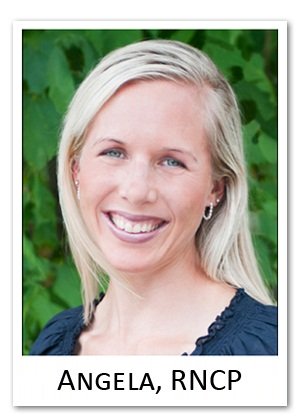
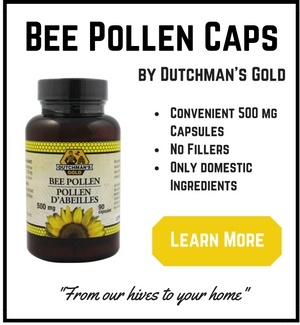
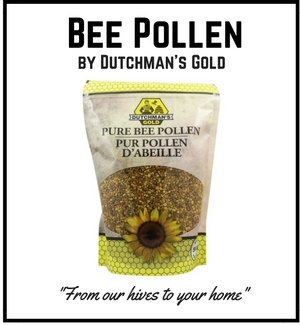
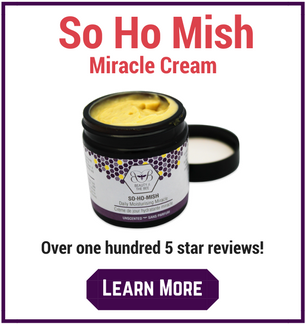
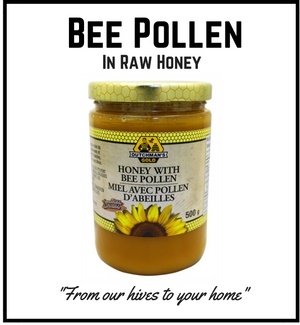






New! Comments
Do you have something to say about what you just read! Leave me a comment in the box below. I'd love to hear from you!